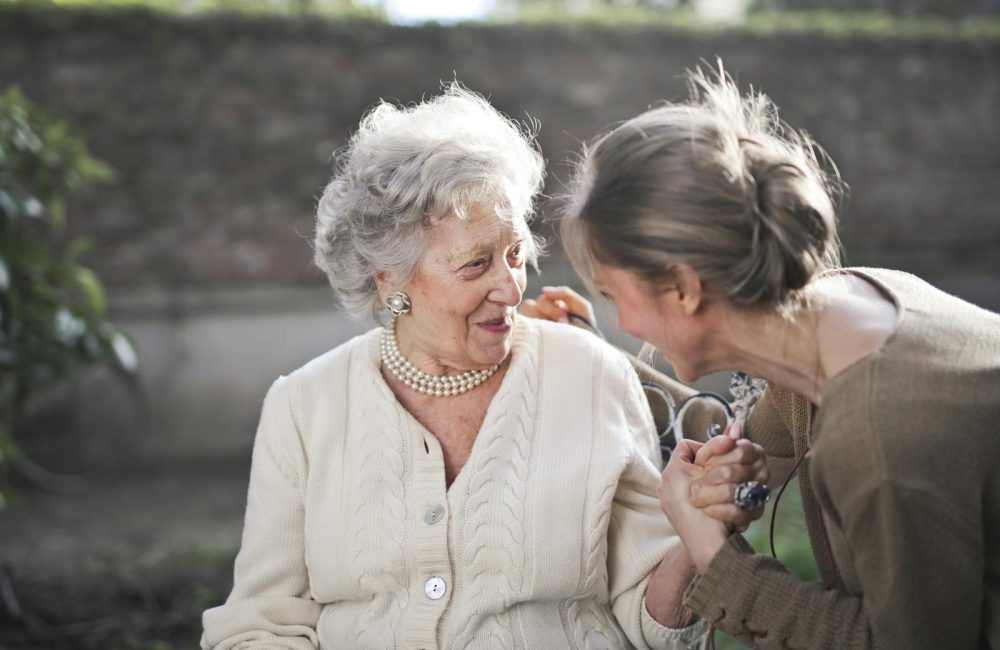Maintaining cognitive health is crucial for older adults as they age, helping to enhance memory, attention, and problem-solving skills. Just as physical exercise is essential for keeping the body in shape, brain-stimulating activities are vital for preserving mental agility and preventing cognitive decline. Incorporating these activities into daily routines can boost brain function, promote emotional well-being, and support lifelong learning. This article explores practical and effective ways older adults can introduce brain-stimulating activities into their everyday lives.
1. Engage in Lifelong Learning
Continuing Education
Older adults can keep their brains active by engaging in lifelong learning. This could include taking courses at a local community college, joining online learning platforms, or attending workshops on subjects that interest them. Learning new information challenges the brain to form new connections and enhances cognitive function.
- Online Courses: Websites like Coursera, Udemy, and edX offer courses on a variety of topics, from history and science to technology and art.
- Local Libraries and Colleges: Many local libraries and community centers offer free classes or lectures that seniors can attend in person, which also promotes social interaction.
Reading and Writing
Reading regularly, whether it’s books, newspapers, or online articles, stimulates the brain and improves vocabulary, comprehension, and critical thinking. Writing, including journaling, blogging, or even creative writing, helps sharpen language skills and fosters self-expression.
- Reading Clubs: Joining a book club adds a social component, encouraging discussion and deeper analysis of the material.
- Daily Journaling: Writing down thoughts, experiences, or creative stories is a simple yet powerful way to keep the brain engaged.
2. Challenge the Mind with Puzzles and Games
Brain Teasers and Logic Puzzles
Puzzles like crosswords, Sudoku, and logic-based games such as chess or bridge stimulate problem-solving skills, memory, and attention to detail. These activities encourage the brain to think critically and creatively, providing a fun way to boost mental agility.
- Crossword Puzzles: Solving crosswords regularly strengthens language processing and memory.
- Sudoku: This number puzzle game enhances pattern recognition and logic skills.
- Chess or Strategy Games: Playing chess, checkers, or similar strategy games requires forward-thinking and planning, which helps sharpen cognitive functions.
Digital Brain-Training Apps
Brain-training apps like Lumosity, Elevate, or Peak offer a range of cognitive exercises designed to improve memory, focus, and problem-solving abilities. These apps are often tailored to the individual’s skill level, making them both fun and challenging.
- Lumosity: Provides games that target specific cognitive areas such as memory, attention, and problem-solving.
- Elevate: Offers exercises in areas like reading comprehension, math, and speaking skills, tailored to an individual’s progress.
3. Incorporate Physical Exercise
Physical Activity and Brain Health
Physical exercise is not only beneficial for the body but also for the brain. Studies show that regular aerobic exercise, such as walking, swimming, or cycling, improves blood flow to the brain, promotes neuroplasticity, and enhances memory and cognitive function. Older adults should aim for at least 150 minutes of moderate-intensity exercise per week.
- Walking and Nature Hikes: Walking in natural settings can boost mental clarity, reduce stress, and enhance mood while providing physical exercise.
- Tai Chi or Yoga: These practices combine physical movement with mindfulness and concentration, benefiting both the body and the brain.
Dance and Coordination Activities
Dancing, particularly forms like ballroom or line dancing, requires coordination, balance, and rhythm, all of which stimulate brain function. Following dance steps challenges memory and multitasking abilities, and the social aspect of dancing can also support emotional well-being.
- Ballroom Dancing: Learning and remembering different dance steps requires mental focus and enhances brain flexibility.
- Aerobic Dance Classes: Combining music with movement stimulates multiple areas of the brain at once, encouraging better motor coordination and cognitive agility.
4. Foster Social Connections
Social Interaction and Cognitive Health
Maintaining strong social connections can help protect against cognitive decline. Regular social interaction stimulates the brain by encouraging conversation, emotional expression, and problem-solving in real-time situations. Older adults can foster social engagement by participating in community groups, volunteering, or attending social events.
- Clubs and Organizations: Joining clubs focused on hobbies or interests, like gardening, knitting, or photography, promotes interaction and shared learning.
- Volunteering: Volunteering not only helps others but also challenges the brain by requiring social skills, problem-solving, and communication.
Group Activities and Games
Group-based activities, such as trivia nights, board games, or team sports like bowling, provide both mental and social stimulation. These activities involve memory recall, strategic thinking, and collaboration, all of which contribute to keeping the brain sharp.
- Board Games: Games like Scrabble, Trivial Pursuit, or Monopoly engage critical thinking and social interaction.
- Trivia Quizzes: Participating in trivia games, whether in person or online, helps improve general knowledge and quick recall abilities.
5. Practice Mindfulness and Meditation
Mindfulness Techniques
Mindfulness practices, such as meditation, deep breathing exercises, and yoga, can help older adults manage stress, improve focus, and promote emotional well-being. Regular mindfulness practice is linked to increased gray matter density in the brain, which supports cognitive health.
- Meditation: Mindful meditation, even for just 10-15 minutes a day, can help improve concentration and reduce mental fatigue.
- Deep Breathing Exercises: Practicing deep breathing techniques calms the nervous system and helps improve focus and clarity.
Guided Meditation Apps
Guided meditation apps like Headspace or Calm offer easy ways for seniors to start a meditation practice. These apps provide sessions that are simple to follow and can be customized to focus on areas like concentration, relaxation, or emotional balance.
- Headspace: Offers guided meditations that are beginner-friendly and focused on enhancing mental clarity and relaxation.
- Calm: Provides meditations tailored to improving focus, reducing anxiety, and promoting better sleep, all of which support brain health.
6. Maintain a Nutritious Diet
Brain-Boosting Foods
A diet rich in brain-boosting nutrients supports cognitive health in older adults. Nutrients like omega-3 fatty acids, antioxidants, vitamins, and minerals found in fruits, vegetables, and whole grains are vital for brain function. Incorporating foods like fish, leafy greens, berries, and nuts into the daily diet can enhance memory and concentration.
- Omega-3 Fatty Acids: Found in fish like salmon and walnuts, omega-3s are crucial for brain health and may help delay cognitive decline.
- Antioxidants: Berries, dark chocolate, and green leafy vegetables are rich in antioxidants that protect brain cells from damage.
Staying Hydrated
Proper hydration is essential for maintaining cognitive function. Dehydration can impair focus, memory, and cognitive abilities. Older adults should ensure they are drinking enough water throughout the day to support brain health and overall well-being.
7. Try New Hobbies or Creative Activities
Learning a New Skill
Taking up a new hobby or learning a skill that is unfamiliar can stimulate cognitive function and challenge the brain in new ways. Whether it’s learning to play a musical instrument, trying a new craft, or picking up photography, engaging in creative tasks requires focus, memory, and problem-solving skills.
- Music: Learning to play an instrument or sing stimulates areas of the brain involved in memory and coordination.
- Art and Crafts: Painting, knitting, or pottery fosters creativity while enhancing fine motor skills and concentration.
Gardening
Gardening combines physical movement with problem-solving as individuals plan, plant, and care for their garden. It also promotes relaxation and reduces stress, both of which contribute to better cognitive function.
- Flower Gardening: Planting and maintaining a garden requires planning, attention to detail, and continuous learning, which helps keep the mind active.
- Vegetable Gardening: Growing vegetables adds a rewarding dimension, as it provides not only mental stimulation but also healthy, fresh produce.
Conclusion
Incorporating brain-stimulating activities into the daily routine is crucial for older adults to maintain cognitive health and mental sharpness. Engaging in lifelong learning, challenging the mind with puzzles and games, staying physically active, fostering social connections, practicing mindfulness, maintaining a nutritious diet, and trying new hobbies are all effective ways to support brain function. These activities, when integrated consistently, not only promote cognitive resilience but also enhance emotional well-being, social interaction, and overall quality of life in older adulthood.






